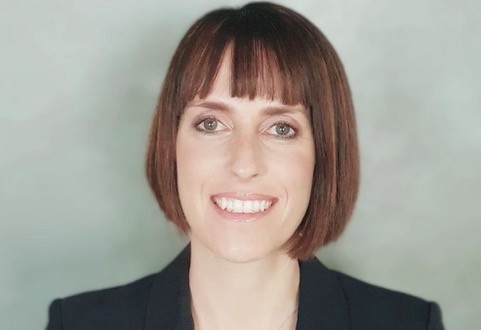Over 422 million people in the world and about half a million in Israel suffer from diabetes. It is on the rise globally, with the number of diabetics quadrupling since 1980. Here, as elsewhere, socioeconomically disadvantaged populations are at greater risk of developing and suffering from the most severe effects of the disease.
Untreated or inadequately treated, diabetes can lead to serious complications including heart disease (a diabetic whose blood sugar levels are not controlled has twice a non-diabetic’s likelihood of dying of heart disease, including stroke); foot problems; kidney disease; blindness; nerve damage (neuropathy); skin conditions; hearing impairment; and even a higher risk for Alzheimer’s disease.
One million Israelis are expected to be diagnosed with diabetes by 2040. a disproportionate number of them from the economically disadvantaged and ethnically diverse Galilee region.
Bar-Ilan University (BIU) in Ramat Gan (near Tel Aviv), aware of this danger, has launched a groundbreaking, $75 million diabetes initiative. The Russell Berrie Galilee Diabetes SPHERE (Social Precision-Medicine Health Equity Research Endeavor) and BIU’s Azrieli Faculty of Medicine in Safed plans to fight for the better treatment and prevention of diabetes and reduce healthcare disparities in the Galilee region, while developing innovations that will have an impact around the world. Twenty million dollars will come from the Russell Berrie Foundation as a cornerstone investment in what is envisioned as a decade-long, $75 million program.
The initiative aims to integrate aspects of the field that are often ignored by bringing together a broad spectrum of scholars; health care, social services and industry professionals; religious community leaders; women’s organizations; municipalities; non-governmental organizations; and Israel Diabetes Association centers.
“The need for innovative models and approaches is expected to be greater than ever in the COVID-19 and post-pandemic era due to its amplified effect on chronic disease health inequities,” said Azrieli Faculty of Medicine dean Prof. Karl Skorecki, who initiated SPHERE. “Having thoroughly examined the diabetes landscape in the Galilee, we believe that this coordinated effort will lead to substantial impact and consistent and sustainable improvement in the region, as well as set an example for other initiatives dealing with chronic diseases in geographic and social peripheral communities.”
“We are honored and proud to partner with the Russell Berrie Foundation and with communities throughout the Galilee in this extraordinary endeavor,” said BIU president Prof. Arie Zaban. “Resolving health inequities by integrating academic excellence with partnership and social accountability will have a deep impact in Israel and, in time, become a global example.”
“We see this investment as a once-in-a-generation opportunity to improve quality of life in the Galilee region and substantially reduce healthcare disparities, while also making a significant contribution to the global field of diabetes treatment and prevention,” said Ruth Salzman, CEO of the Russell Berrie Foundation. “SPHERE is a holistic effort that brings together researchers, community-based healthcare providers, medical students and NGOs. We believe this approach will produce a virtuous cycle, in which patients in the Galilee will benefit immediately and best practices developed on the ground will inform diabetes care and prevention in Israel and worldwide.”
Internationally-renowned endocrinologist Prof. Naim Shehadeh, president of the Israel Diabetes Association and director of Diabetes endocrinology and metabolism at Rambam Medical Center in Haifa, will serve as director of SPHERE.
Dr. Sivan Spitzer, who will serve as deputy director, is an expert in identifying, designing and evaluating organizational strategies aimed at reducing health care inequities. Spitzer is head of population health education and principal investigator of the health equity advancement lab (HEAL) at Azrieli. They will be assisted by a core team including researchers and clinicians representing multiple disciplines, as well as leaders from affiliated regional health maintenance organizations and hospitals.
“This is the largest project of its kind in our nation’s history. I believe that it will serve as a stepping stone to forthcoming national and worldwide comprehensive programs, using cutting-edge scientific models for improving health services for disadvantaged communities,” said Shehadeh. The targets include a 50% reduction in the conversion rate from pre-diabetes to diabetes and a dramatic increase in the number of diabetes patients whose glucose levels are well-controlled.
Through research, education and healthcare delivery, SPHERE will incorporate four pillars of activity – prevention, control, care and the search for a cure. Diabetes prevention efforts will include creating community infrastructures to promote healthy lifestyle as well as health education programs targeting high-risk populations and pre-diabetes patients. Diabetes control efforts will involve the implementation of new strategies, combining precision medicine with social determinants of health to improve clinical management and mitigate complications. SPHERE will transform diabetes care by developing an integrated, inter-organizational model, in which healthcare providers and communities work together, they said.
And when it comes to the search for a cure for diabetes, the Galilee region is rich with potential for researchers because it is home to the most diverse set of population isolates in the world, including Muslim Arabs, Christian Arabs, Jews, Druse, Beduin, Circassians and Maronites. SPHERE’s research program will identify genetic mutations that cause diabetes and are specific to particular population isolates—leading to tailored medical care for patients, as well as the development of new diagnostic and prevention tools.
The SPHERE strategic plan was developed following a year-long process of intensive transdisciplinary, regional, national and international consultation.
“For me, as for millions of people around the world, diabetes is deeply personal,” said Angelica Berrie, president of The Russell Berrie Foundation. “My late husband, Russell Berrie, was a type 2 diabetic who experienced the devastating impact of this disease. SPHERE draws on Israel’s unparalleled expertise in healthcare innovation to change the landscape for future generations.”
The shortcode is missing a valid Donation Form ID attribute.



